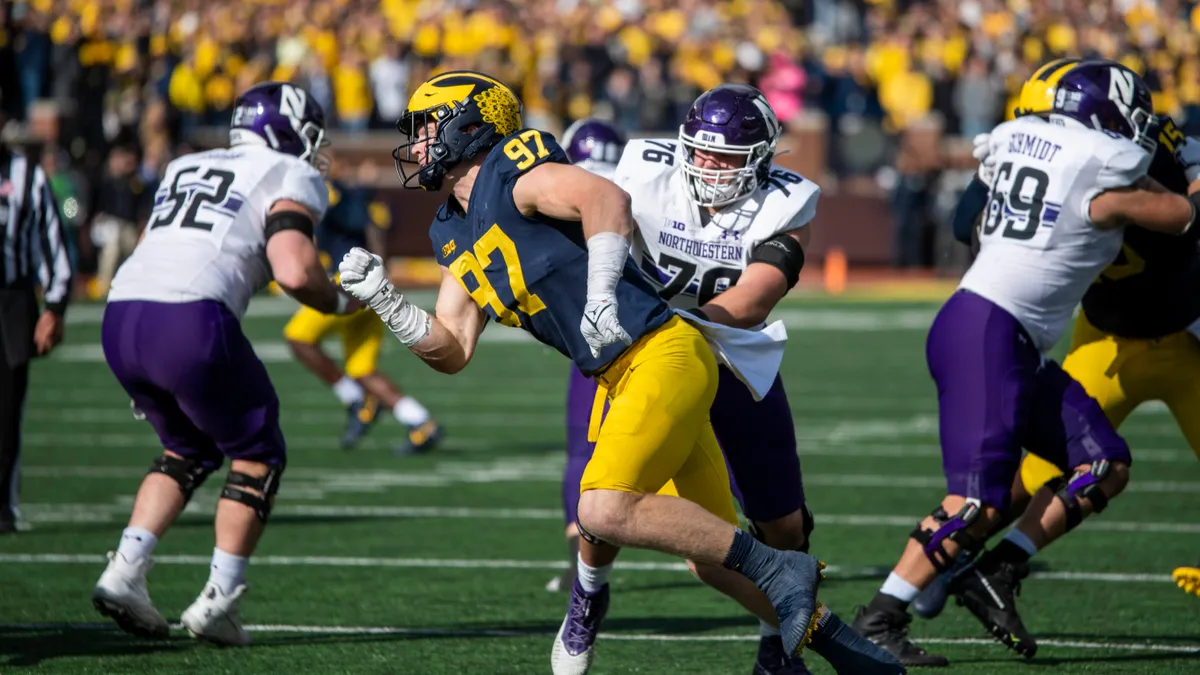Dive Brief:
- Northwestern University has tapped Loretta Lynch, former U.S. attorney general during the Obama administration, to investigate the culture of its athletics department and the institution’s processes for handling hazing allegations.
- The announcement Tuesday comes as lawsuits mount accusing Northwestern officials and players of creating a culture that allowed hazing, sexual abuse and racism to flourish. Just this week, at least three former Northwestern football players have taken to the courts to make hazing allegations against the university.
- The university said it will publicly release the results of Lynch’s review. Northwestern has taken other recent steps to attempt to combat hazing, including monitoring the football locker room, providing anti-hazing training for all university sports teams, and developing an online tool to report hazing and other misconduct.
Dive Insight:
Ramon Diaz, a former Northwestern offensive lineman, filed at least the 10th hazing lawsuit against the university since early July, when legal troubles for the top-ranked institution in Illinois began to grow.
That month, The Daily Northwestern, a student newspaper, published anonymous accounts detailing hazing allegations in the football program that included coerced sexual acts. It also suggested then-head coach Pat Fitzgerald, who was fired last month over the scandal, may have been aware of the hazing.
One former player described a practice called “running,” in which a group of juniors and seniors in masks would restrain a victim and then start “dry-humping” the person. The ritual was used to punish players who made mistakes, according to the account published in the student newspaper.
The first hazing lawsuit filed against the university since the scandal broke similarly detailed this practice. It also alleged that first-year students were forced to drink as many protein shakes as possible during a 10-minute period, among other hazing rituals, which often included forced nudity.
A day before The Daily Northwestern published its reports, Northwestern announced an outside investigation into the football program had been completed.
It determined that “participation in or knowledge of hazing activities was widespread across football players.” The probe did not find that coaching staff knew about the hazing, but investigators said they had opportunities to discover it.
Northwestern initially suspended Fitzgerald for two weeks without pay. But the university terminated him just days later as new details came to light, with Northwestern President Michael Schill saying in a statement that “the head coach is ultimately responsible for the culture of his team.”
The first lawsuit filed against the university took aim at Schill and other officials as well.
It contends that Schill, former university president Morton Schapiro, the university’s board of trustees and Derrick Gragg, the institution’s vice president for athletics and recreation, were all complicit in the alleged “systemic abuse” of Northwestern athletes.
In announcing Lynch’s investigation Tuesday, Schill rejected the practice of hazing.
“Hazing has absolutely no place at Northwestern. Period,” he said in a statement. “With the help of Attorney General Lynch, we will become a leader in combating the practice of hazing in intercollegiate athletics and a model for other universities.”















